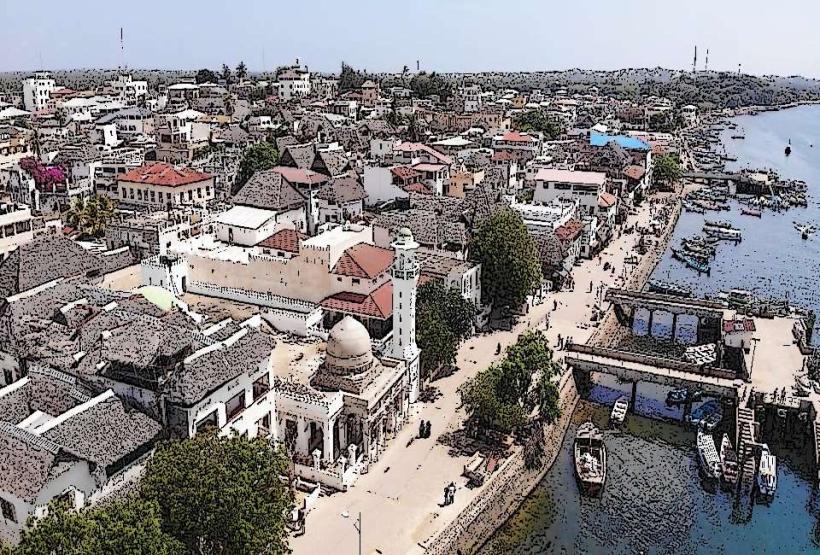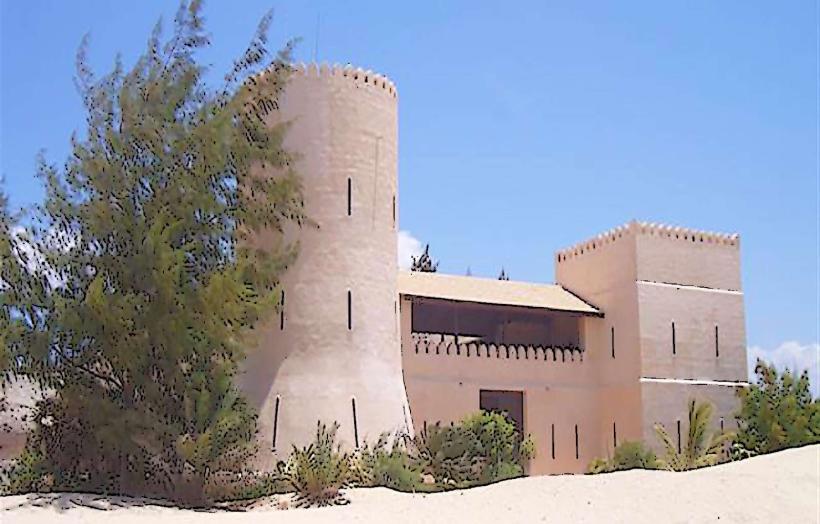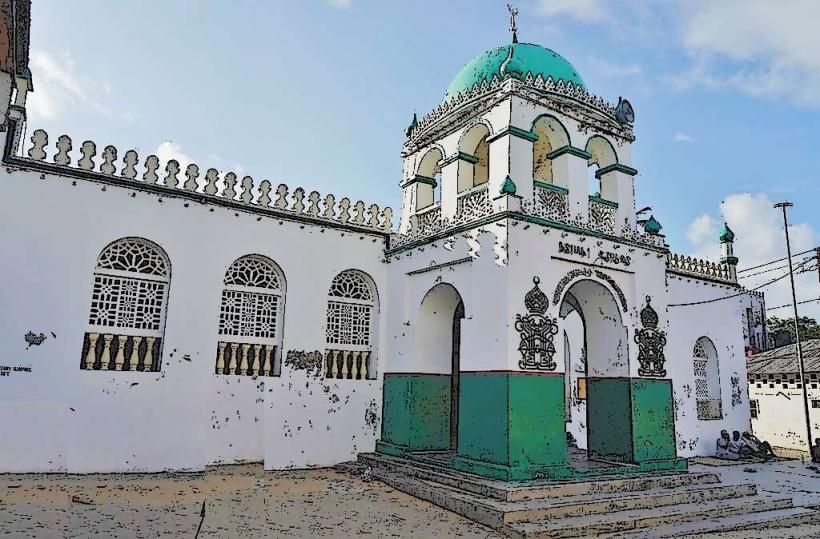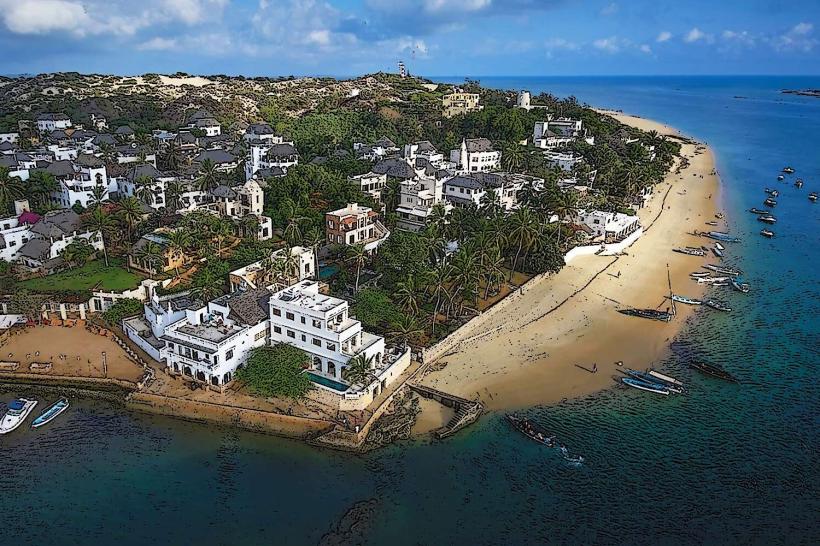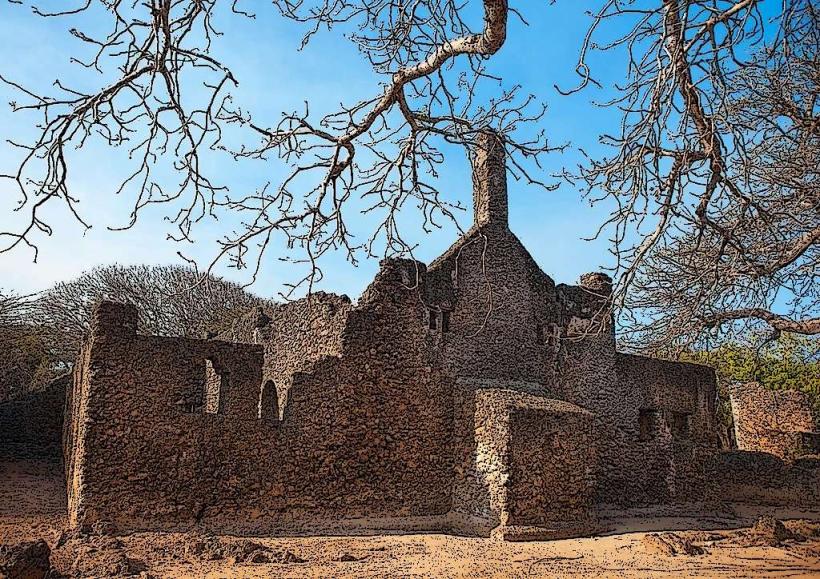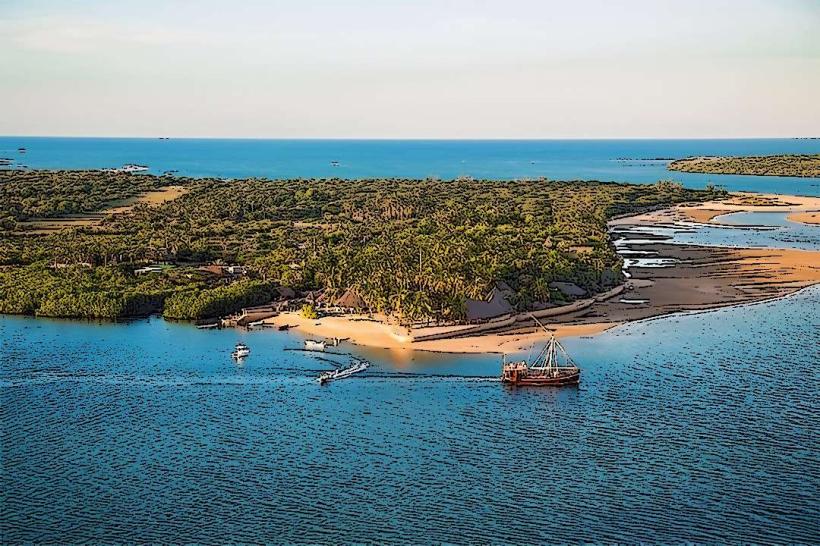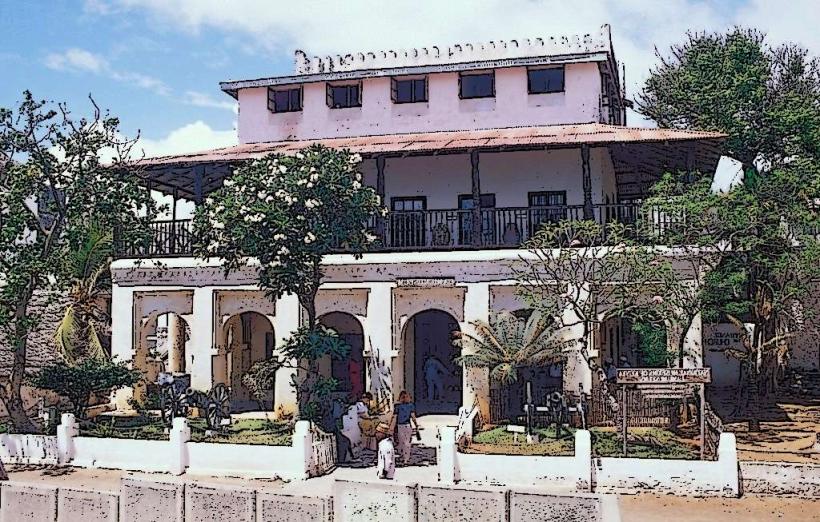Information
Landmark: Donkey SanctuaryCity: Lamu
Country: Kenya
Continent: Africa
Donkey Sanctuary, Lamu, Kenya, Africa
The Donkey Sanctuary in Lamu, Kenya, is a vital organization dedicated to the welfare of donkeys on the island, which are an essential part of daily life. The sanctuary was founded in 1987 by Dr. Elisabeth Svendsen, a British veterinarian, in response to the harsh conditions faced by the donkeys on the island. Lamu is unique in that it has no motorized vehicles, and donkeys are used for transportation, carrying goods, and other vital services. As a result, these animals are often overworked and can suffer from malnutrition, injuries, and exhaustion.
Mission and Goals
The primary mission of the Lamu Donkey Sanctuary is to improve the lives of donkeys on the island and educate the local population about the humane treatment of animals. The sanctuary offers a variety of services and programs to help achieve this goal:
Veterinary Care: The sanctuary provides free veterinary care to donkeys in need. This includes treatment for injuries, illness, malnutrition, and parasites. Donkeys often work long hours in harsh conditions, and the sanctuary ensures that they receive proper medical attention. The veterinary team responds to emergencies and conducts regular health checks.
Education and Training: One of the key aspects of the sanctuary's work is educating donkey owners about how to care for their animals properly. Through training programs, the sanctuary teaches owners about appropriate feeding, harnessing, grooming, and the importance of rest periods for donkeys to prevent exhaustion. They also promote the use of humane practices, encouraging owners to treat donkeys with respect and kindness.
Emergency Response: The sanctuary’s staff is always ready to assist in urgent cases, whether it’s a donkey with a serious injury, one that’s exhausted, or another emergency situation. This immediate response is crucial, as donkeys play such a vital role in the daily life of Lamu.
Key Services Provided
Mobile Clinics: The sanctuary operates mobile veterinary clinics that travel around Lamu, providing care and medical attention to donkeys, especially in remote areas where access to a veterinary clinic may be difficult.
Donkey Welfare Projects: In addition to providing veterinary services, the sanctuary runs several projects aimed at improving donkey welfare. These include water provision projects and the installation of shade structures where donkeys can rest during the hot midday sun.
Donkey Health and Well-being Monitoring: The sanctuary also monitors the health of the donkey population on the island, keeping records of their health status and ensuring that any donkey showing signs of distress or ill-health receives the necessary care.
Community Engagement
The sanctuary’s work extends beyond just the donkeys. It involves community engagement and awareness programs aimed at improving animal welfare standards. The sanctuary works closely with the local population, particularly donkey owners, to foster a culture of compassionate care.
Workshops and Education Programs: Through workshops, the sanctuary educates the local community on the needs of donkeys and the benefits of treating them well. These educational efforts aim to reduce the harsh treatment of donkeys and ensure they receive proper nutrition and rest.
World Animal Day Celebrations: The Donkey Sanctuary in Lamu participates in events like World Animal Day, where the community comes together to celebrate animals and raise awareness about animal welfare. These events provide an opportunity for the public to interact with sanctuary staff, learn more about the work being done, and engage in discussions about the importance of animal care.
Visiting the Sanctuary
While the Donkey Sanctuary in Lamu does not have a traditional visitor center or formal guided tours, it is an important part of the local community, and its impact can be seen all around Lamu. Visitors to Lamu can interact with the sanctuary's work in several ways:
Seeing the Impact: Donkeys that have been treated by the sanctuary can be seen throughout Lamu Town. Many donkeys carry their goods in a way that suggests they are well-rested and cared for, thanks to the sanctuary's efforts. The sight of healthy, well-treated donkeys reflects the sanctuary's ongoing work in the area.
Support Local Initiatives: Visitors can support the sanctuary’s mission by donating, volunteering, or raising awareness. There are opportunities for people to contribute to the organization, whether by making financial donations or by spreading the word about the importance of treating animals with kindness.
Local Integration: By spending time in Lamu, visitors indirectly contribute to the sanctuary’s efforts. Lamu is a pedestrian-only town, where the presence of donkeys is ubiquitous. This provides visitors with an immersive experience, allowing them to see firsthand how donkeys play a crucial role in the life of the island’s residents.
Challenges and Achievements
The Donkey Sanctuary in Lamu faces several challenges, primarily because donkeys are often overworked and live in difficult conditions. Despite this, the sanctuary has made significant strides in improving the lives of donkeys on the island. Some of the achievements include:
Improved Health of Local Donkeys: Thanks to the sanctuary’s efforts, the health of many donkeys on the island has dramatically improved. The rate of injuries and illnesses has decreased, and more donkeys are getting the medical care they need.
Cultural Change: The education programs have helped shift attitudes towards donkeys, with many owners now understanding the importance of treating their animals with respect and providing them with adequate care. This cultural change is crucial for the long-term welfare of donkeys.
Increased Community Support: The sanctuary’s work has garnered widespread community support, with more and more locals involved in donkey welfare initiatives. This includes donkey owners becoming advocates for the humane treatment of donkeys.
Practical Information
Location: The Donkey Sanctuary is based in Lamu Old Town, and its mobile clinics travel throughout the island to provide veterinary care where it’s needed most.
Visiting Hours: While there is no official visitor center, the sanctuary is always active in the community, and visitors can learn about its work by talking to locals or engaging with the staff on special animal welfare events.
How to Contribute: Visitors can donate to the sanctuary or support its programs. Donations help fund veterinary services, educational outreach, and emergency response efforts for donkeys.
In Summary
The Lamu Donkey Sanctuary plays a critical role in ensuring the well-being of the island’s donkeys, which are an integral part of the local culture and economy. By providing veterinary care, education, and emergency response services, the sanctuary has improved the lives of thousands of donkeys and helped foster a culture of compassion towards animals in the Lamu community. Visitors to Lamu can engage with the sanctuary's mission in meaningful ways, contributing to the ongoing efforts to improve the welfare of donkeys on the island.

